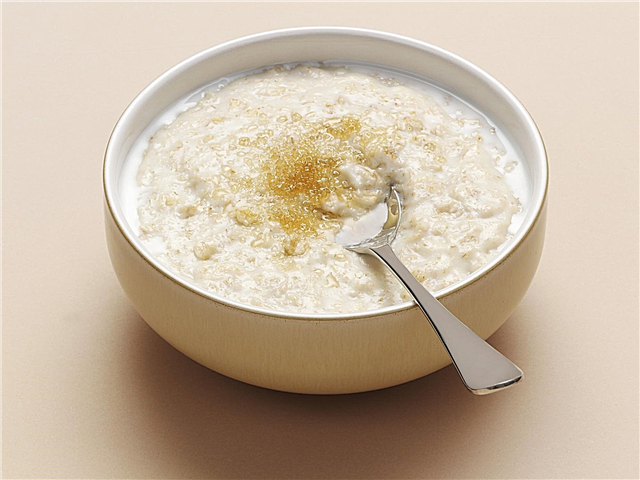Caring parents are always worried about what the weight of an infant should be, and whether the indicators of their baby correspond to the standards of physical development. In order not to experience unnecessary worries, mothers and fathers need knowledge about the growth and weight norms of babies. You can use the data accepted in pediatric practice and track how much a child should weigh at 10 months.

By 10 months, there are noticeable changes in the parameters of the body, weight and height of the child
With proper care and quality nutrition, the baby quickly develops physically and mentally: it gains weight and height, develops new knowledge, skills and abilities, tries to walk, reaching the necessary indicators by the end of the year.
Height and weight of a baby at 10 months
Child growth at 10 months. added by about one and a half centimeters, weight by 200-300 grams. There is an increase in the volume of the chest and head by 0.5-1.5 cm.
Note. If the child does not reach the required norm in some indicators, there is no need to immediately despair. Pediatricians warn that growth and weight gain are strictly individual.
Children, as a rule, develop physically unevenly, one baby gains weight and growth faster, while the other's gain is stretched indefinitely. To expand knowledge about children, it is useful for parents to get acquainted with anthropometric data adopted by the World Health Organization. A ten month old baby should have the following parameters:
- boys: weight - from 7.4 to 11.4 kg with a height of 68.7-77.9 cm.
- girls: 6.7-10.9 kg, height - 66.5-76.4 cm.
Note. The parameters of height, weight, head and chest circumference are called centiles. They are established by WHO on the basis of a survey of a large number of infants. Average parameters are used to quickly check the development of the child, the compliance of his indicators with the norm.
According to the WHO, the norm for healthy boys and girls is the number of characteristic features in the range from 25 to 75 centiles. The fiftieth centile is considered the standard of physical development.
In domestic pediatrics, the normal weight and height of a ten-month-old baby differ from those generally accepted in the world:
- the normal height of a boy at 10 months is 73.3 cm, weight - 9.2 kg;
- normal indicators for girls: weight - 8.5 kg, height - 71.5 cm.
As you can see, the boundaries of the required weight and height for children according to international indicators are wider than according to Russian standards. Parents can use both domestic anthropometric data and WHO data. In case of serious deviations from one or another standard, you need to consult a pediatrician and together with him find the reasons for the deviations.
Table of norms for boys and girls
Pediatricians pay attention to the fact that infants cannot develop in the same way. Much in the development of a baby depends on his individual characteristics, physical condition in a particular age period. Not surprisingly, one child grows up quickly and gains weight, the other slowly.
Good advice for dads and moms: keep a children's diary, where you write down the crumbs' indicators every month and analyze them. This technique helps to make sure that the baby is developing correctly.
Note. Boys gain body weight faster, so different tables of weight and height standards have been compiled. From the table, parents can easily find out how much a child should weigh at 10 months, a girl and a boy.
Weight and height indicators for girls and boys at 10 months
| Girls | Boys | |||||
|---|---|---|---|---|---|---|
| Index | lower | middle | upper | lower | middle | upper |
| Weight, kg) | 6,8 | 8,5 | 10,7 | 7,5 | 9,2 | 11,2 |
| Height (cm) | 66,8 | 71,5 | 76,1 | 69 | 73,3 | 77,6 |
Height of children who are 10 months old
When the baby is ten months old, his body becomes proportional, in comparison with previous periods, the growth rate slows down. This is due to the fact that the child's body is aimed not only at physical, but also at mental and emotional development.
According to the standards, boys at 10 months. the average height is considered to be from 71 to 76 cm, in girls - from 69 to 74 cm. It is useful for parents to know that at this age a deviation of growth rates within 3% of those indicated in the table is quite acceptable. If the growth deviation exceeds 10%, it is necessary to consult a doctor.

The growth of a ten month old baby slows down, the body becomes proportional
Note. In the first year of life, the child grows by about 20-25 cm. This is the most intense indicator for the entire period of early childhood, since in the future the baby will grow 2 times slower.
Babies older than 6 months are especially active in growth, because their diet during this period becomes more varied due to the introduction of complementary foods.
The height and weight of a 10-month-old child according to Russian pediatricians
In physical development, growth is of great importance for infants. The rest of the standards are considered in conjunction with it, since with an increase in body length, other indicators (weight, head and chest girth) should also increase in proportion.
Domestic pediatricians compiled a table of the main parameters of the physical development of children of the tenth month of life. Having such a table at hand, you can always trace the development of your child, identify deviations from the norm in time.
Parameters of physical development of a child at 10 months.
| Development parameters | Approximate indicators of the norm | |
|---|---|---|
| Girls | Boys | |
| Height, cm | 69 – 74 | 71 – 76 |
| Weight, kg | 8,2 – 10,8 | 9,2 – 11,5 |
| Head circumference, cm | 45 – 46 | 46 – 47 |
| Chest circumference, cm | 43 – 44 | 44 – 45 |
When the child is not gaining the right weight
If the child is developing correctly, his accurate indicators will always meet the standards. There are times when the baby does not gain the required weight well, in difficult situations - does not gain at all. This becomes a big problem for parents, since it is weight that is the main indicator of the baby's health.
According to the WHO, the norms for weight gain have been developed for each age period. To monitor the health of the baby, you must adhere to the weighing schedule of children and keep a diary. In this case, it is easy to check the weight gain.
Up to 2 months, it is recommended to weigh the baby every week, from 2 months to a year - once a month. Approximate growth rates:
- in 1 month of life - from 500 to 1200 grams;
- in the 1st half of the year - at least 400 grams per month;
- in the second half of the year - 200-300 grams per month.

Weighing your child regularly helps to monitor their health
Note. In the first half of the year, the baby's body weight should double, in the second - three times, compared to the newborn. If the baby is not gaining weight, but is mobile and active, then there is no reason to worry. You need to consult with a specialist and identify the cause.
What determines the weight of the baby
The weight of the baby depends on its individual characteristics and environmental factors: type of food (on gv children gain weight more slowly than on an artificial mixture); physical activity (mobile babies find it more difficult to gain weight due to energy expenditure); heredity, when a child inherits the physical characteristics of their parents.
How health problems affect baby's weight
- Not gaining enough weight depends on various reasons. The most common health problem is. While the child is sick, the body directs its forces to the disease, even a small cold causes a lack of weight.
- Fatigue during massage, exercise, or swimming can lead to weight loss. The kid gets tired during the procedures, his appetite disappears.
- Lack of weight can be a harbinger of neurological diseases in a child or the appearance of helminths.
- When the child does not reach the prescribed body weight, you should pay attention to the behavior of the baby. Anxiety, poor sleep, moodiness, frequent crying, and loose stools negatively affect maintenance and weight gain.
If the child is overweight
Often, parents by their inappropriate behavior influence the appearance of overweight in an infant. If a child weighs 10 kg at 10 months - this is the norm, the reasons provoking overweight can be:
- feeding the baby with high-calorie food;
- sedentary lifestyle of the child, leading to physical inactivity;
- hereditary predisposition;
- metabolic disease;
- neuroendocrine diseases;
- non-compliance with the diet, snacking on cookies between meals.

Being overweight at 10 months can lead to obesity
If you do not eliminate the causes of overweight, there is a possibility of obesity. This is fraught with complications that will be difficult to remove in the future. To reduce the likelihood of developing obesity in newborns, you must follow the simple preventive measures prescribed by your doctor.
How to bring your baby's weight back to normal
To bring the baby's weight to the average norm, consultation of several specialists is required: a pediatrician, an endocrinologist, a neurologist, a geneticist, who can examine an overweight child and prescribe a comprehensive treatment. The complex includes:
- special diet: the baby's diet is supplemented with a variety of products containing the necessary trace elements;
- massage, gymnastics and exercise therapy;
- drug treatment: vitamins and approved drugs are added to baby food, which affect weight loss;
- calcium, which, in addition to affecting excess body weight in a newborn, prevents the development of rickets;
- carrying out physiotherapy, which includes mud therapy, swimming in baths with minerals, aerotherapy, hydrotherapy.
Indicators of the weight of children are necessary in order to timely identify possible deviations in physical development and eliminate their causes. For a child to develop normally, it is necessary to follow the recommendations of a specialist.



